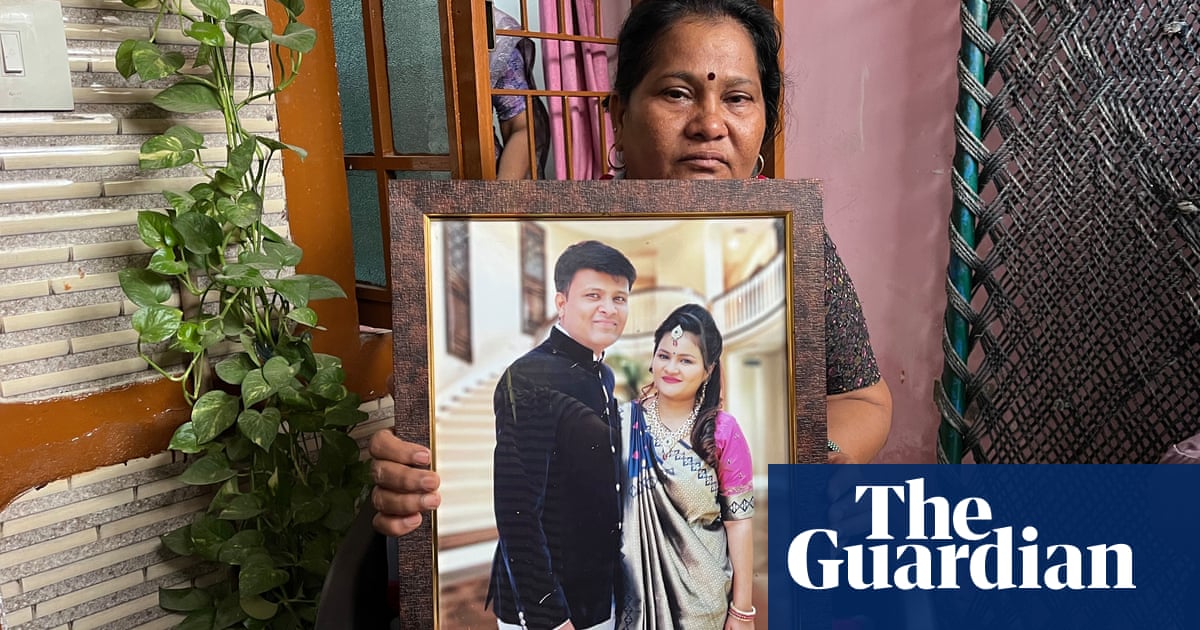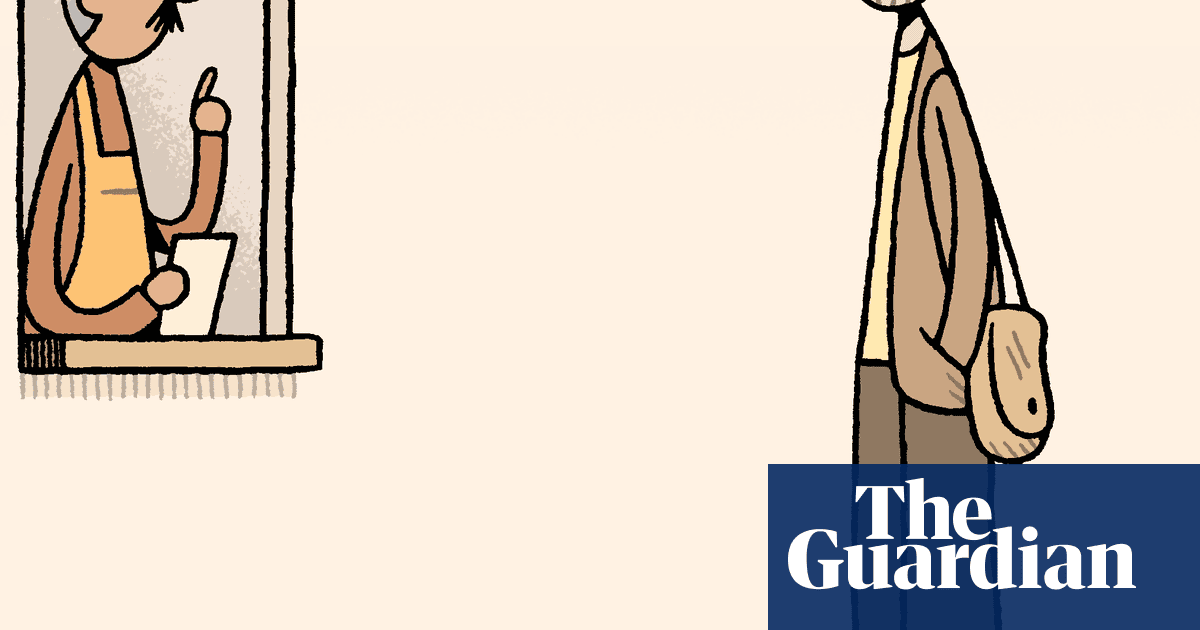The first time I gave him a gummy, I thought, ‘Oh my God, have I killed him?’ He just passed out in front of the TV. That never happens.” Jen is remembering giving her son, David, six, melatonin to help him sleep. She got them from a friend, a paediatrician who gave them to her own child. “It was sort of hilarious. She had half a tub of gummies, and her husband met my husband in a car park near a roundabout to hand them over, like some underhand black-market deal.” Her tone is light, but in fact she and her husband were becoming increasingly desperate for sleep. “They were like gold dust.”
By meeting in the car park to exchange the gummies, the husbands weren’t breaking the law, exactly, but they were stepping into a legal grey area. Melatonin is a synthetic version of the sleep hormone that occurs naturally in our bodies, rising at night in response to darkness and helping us get to sleep. It isn’t strictly illegal in the UK, but it is a prescription-only medication, and it can only be prescribed to children by a paediatrician under a specific set of circumstances, usually for children with a diagnosis of autism or ADHD. The rationale for this pathway is so that the paediatric specialist can rule out any potentially physical causes or underlying disease relating to the sleep disorder. Side-effects can include drowsiness the next day, nausea and feeling dizzy.
In other European countries melatonin is far more accessible, often sold in pharmacies, although the guidelines for use in children are the same (both there and in the UK, it is licensed only for children with autism and ADHD). In the US, meanwhile, where it is far less regulated, you can buy it in supermarkets, even from Amazon, and it is often specifically targeted at children. Some gummies come in the shape of teddy bears, or are marketed using cartoon characters. There, it is routinely given to neurotypical children: nearly one in five US children under 14 are now consuming melatonin. In light of more restricted access in the UK, British parents are increasingly looking to the internet to purchase gummies, often with little medical oversight or supervision.
David never slept, Jen tells me. Even as a newborn he was unusually alert. Where other babies ate and slept, he ate and was awake, and never settled easily. “In the early days you’re in good company,” she says, of the sleep deprivation. But, as time went on, she began to feel increasingly isolated.
“People kept saying it will improve when he starts nursery, when he starts preschool. It never did. We just never had an evening. We’d be putting him to bed, sometimes, at 11 o’clock or midnight.” David was also having massive meltdowns. Despite trying a calm bedtime routine, nothing seemed to be working, and it was taking a toll on the entire family. Jen was so exhausted she was forced to stop working completely.
As David grew, his parents started to suspect neurodivergence. He could count to 20 at 18 months, and was doing 30-piece jigsaw puzzles. An educational psychologist has recently confirmed that he is gifted to the extent that it will affect his life significantly, and he has been on the waiting list for an autism assessment for two years. When he was five, he was taken to see a paediatric consultant in the European country they were living in at the time. “I think my pineal gland’s broken,” David told the doctor, much to everyone’s astonishment. He was prescribed melatonin, and their lives changed for the better overnight. Had they been living in the UK at the time, they would almost certainly still be waiting.

“Although people think of melatonin as a vitamin nowadays, it’s not. It’s actually a hormone that’s released by the pineal gland in the brain, and it does lots,” says Prof Paul Gringras, a sleep and neurodisability consultant at Evelina London children’s hospital, and president of the International Paediatric Sleep Association. “The pineal gland connects with all different parts of the body and helps synchronise all the cells in the body to keep our body clock going. Although every cell in the body has its own little clock, they’re not synchronised and they need to be held together. Melatonin is one of the main messengers.”
David’s description of his pineal gland as “broken” was rather astute, then. Certain populations of children, such as those with autism and ADHD, simply sleep far worse than typically developing children – Gringras tells me the rates are 70-80% of children with those diagnoses. My brother, who is autistic, mostly non‑verbal with very high support needs, was one such child. “It was soul-destroying,” my mum, Anna, remembers. “Just mind-bendingly exhausting.” Thanks to melatonin, prescribed by the paediatrician, she could get four hours of sleep a night. “He didn’t sleep for more than two or three hours at a time. What the melatonin did was keep him asleep for at least four hours and I could cope, just about, if I got four and a half hours.”
I have seen first-hand the impact that sleeplessness can have on a family, and how neurodivergence and sleep issues are often intertwined. “Some children with autism lack a gene that helps convert a chemical in the body called tryptophan into melatonin. So if you measure melatonin levels in the urine, they’re actually producing less melatonin,” says Gringras. As for ADHD, those children do produce some melatonin, “but instead of it being the hormone of darkness, produced in the early evenings, they’re not producing it till way later, until two in the morning”.
These families need help. If their child’s sleep is being managed by professionals, their parents are less likely to get divorced, lose their jobs, crash the car or have an accident. That’s not to say, however, that all these children must be medicated. Gringras is keen to emphasise that behavioural sleep programmes can be transformative, even in the most severe cases. In one sleep trial he ran, 50% of the severely autistic children who were signed up didn’t need to take part in the medicated bit, because the behavioural strategies had been so successful. When he does prescribe melatonin, parents still need to keep the behavioural approach going so that they have learned new habits for when the melatonin stops working. “Even on the labelling of these medicines, it says: for children who have failed an appropriate behavioural intervention,” he points out. What concerns him, and other professionals I speak to, is the idea of melatonin as a sticking plaster.
“Many of the [paediatric] community are on their knees. They have massive waiting lists. They don’t have psychologists. And this is one of my really big worries, that it kind of becomes a quick fix. No one thinks it’s better than the behavioural approach, but they just haven’t got time to do that. And it’s faster to write a prescription, but it’s not correct.”
That is, of course, if you are even able to get hold of a prescription. Most of the parents I spoke to didn’t have one. They were buying melatonin on the internet, or while abroad. All of them felt conflicted, uneasy, even scared of the consequences. Some were waiting for a diagnosis, while others suspected neurodivergence but hadn’t gone down that path yet. All of them only spoke on condition of anonymity, and every single one of them was totally desperate for a good night’s sleep.
‘It makes me feel like a drug dealer. It’s getting harder and harder to buy them.” I’m speaking to Charlotte, who, like Jen, has spent much of her child’s life enduring “endless evenings”, which she describes as “unbearable”. Her daughter, Edie, now 10, couldn’t settle. “She’d lie in bed moving around a lot, jerking her body. She just couldn’t sleep.”
As a family, they tried everything. “We’d do bath time and lavender oil and reading a story and talking, and then we’d try leaving her on her own. Nothing worked. We’d just have to lie with her for hours.” They wondered quite early on if Edie had ADHD, but didn’t pursue diagnosis. “She’s really brilliant and wonderful, but she was quite volatile, and really quite hyperactive.”
They first started giving her melatonin when she was eight, when Charlotte’s sister-in-law, a doctor whose disabled daughter takes melatonin, gave her some to try. Charlotte was astonished – not only did Edie go to sleep at 8pm, but the effect on her behaviour and mood was transformative. She started buying it online.
Charlotte thinks that Edie’s volatility is directly linked to her sleep. A model student at school who struggled with peer relationships, she would mask, or hold it together, until she got home where she could become aggressive towards her parents and siblings. At times her mental health difficulties have been extreme. “She was getting more and more anxious and having very, very dark dreams and getting very upset,” says Charlotte. “She started banging her head against the wall till it bled. And then she started banging her sister’s head against the wall till it bled.” Things escalated. On one occasion Edie got on the roof and threatened to jump, saying she wanted to die.

“The fact that she couldn’t sleep was a massive contributor to her feeling super stressed and highly sensitive,” says Charlotte. “When we started giving her melatonin it got a lot better. Then last year I ran out of melatonin. I couldn’t buy it.” It was like a switch flicked inside Edie’s brain. “She tried to run in front of a speeding lorry because she said everyone hated her. And then she started holding knives to her neck. She didn’t want to go to school. And I didn’t know what to do.”
Charlotte ran to the doctor’s surgery with her child in her arms. “We went to see a counsellor, and we borrowed some money to get her assessed. And it came back as not ADHD, but autism,” she says. She also had an emergency mental health appointment, but all they could offer a suicidal autistic child who struggles with groups was, astonishingly, group therapy nine months later. “Then they said, ‘How is her sleep?’ And I said, ‘Well …’, and the woman said to me, ‘If you are about to tell me that you give your child unprescribed melatonin, I will have to report you to social services and they will take action.’ And I was like, fuck. And it was really stressful.”
Gringras is shocked when I tell him about the safeguarding threat made to Edie’s mum. It is true that safeguarding is very important, and buying medication on the internet comes with risks. In the US, there has been a spike in child hospitalisations – poison control centres there saw a 530% spike in reports of melatonin ingestion in children between 2012 and 2021 – and seven reported deaths since 2015, including a child as young as two months. Gringras points out that the lack of US regulation means there often isn’t dosage consistency across even a single jar of gummies. A study last year found that some contained an alarming 50mg of melatonin – 0.5-1mg is the recommended starting paediatric dose. Linking these deaths directly to melatonin is a challenge because you can’t exclude underlying health conditions or whether other medications played a part. Nevertheless, it is concerning.
“I don’t think it’s fair to come down hard on a parent if they’re not getting the support they need, and they’re just doing something out of desperation. I think the real question is: why haven’t we been able to support the parent with behavioural advice? Why haven’t we been able to see the child and reassure them, maybe, hopefully, they don’t have something physically wrong? And why are we going to make them wait three years for a diagnosis?”
All the parents I spoke to expressed unease, guilt and even fear at their decision to give their children melatonin bought online or abroad. Jen told me she was worried about being arrested, and, though the school Senco is aware the family uses it, she would hesitate to mention it to a GP. Even parents who were giving melatonin under some degree of medical supervision, usually from a family member who works as a doctor, felt anxious. I spoke to doctors who give their own children melatonin bought online but wouldn’t go on the record for fear of professional consequences.
Although Edie now has an autism diagnosis, and Charlotte is finding it increasingly hard to get melatonin on the internet, the threat of a social services referral means she is now frightened to talk to a paediatrician about getting it prescribed officially. “The other day we had a hospital appointment. We were asked, does she take any medication? And I said no. And Edie looked at me and I just shook my head.”
But it’s not only parents of neurodivergent children who are turning to melatonin. I spoke to a number of mothers who have given it to their neurotypical children. One, Isobel, says she has only used it a couple of times when taking an overnight flight, having obtained it from an American relative. “The first time, my daughter was four, and my youngest was nearly two. As they were one-offs, and as it’s sold for use by kids in the US, I wasn’t worried about the side‑effects and felt it was safe in that quantity.”
Emily has been giving melatonin to her children – eight and four – for longer. She gave it to her eldest when she started year 1 and began struggling to get to sleep – sometimes she was awake until 11pm, and teachers had started raising concerns about how tired she was. “We’d have to drag her out of bed and she’d be exhausted. It was really distressing,” Emily said. At her wits’ end, and worried that her daughter was falling behind at school, she ordered some melatonin online. She did a lot of research, choosing a brand used by a paediatrician quoted in an article in the New York Times, and says she kept an eye out for side-effects such as sleepwalking or drowsiness the next day.

The effect, Emily says, was “life-changing”. “It freaked me out a little bit. I was like, oh my God, what have I done? What have I given to her? Why has this happened? But she fell asleep after 20 minutes and it felt very natural. She had a few stories. She just got naturally drowsy. She fell asleep. Then the next morning, she woke at a normal time, bright and ready for school.” After that, Emily gave her a gummy every night for eight or nine months, but says she no longer needs it.
“I was really worried they’d get addicted to it, but it’s almost like the melatonin helped them form a new habit [of going to sleep at a decent time].” She now gives it to her youngest child, who at four-and-a-half developed similar issues, and it has had the same effect on bedtime. She has recommended it to a few parents she knows from school and some are also giving it to their children. “One friend, her partner died when her kid was very little, in a really awful, traumatic way. I think that kid was basically suffering from PTSD, would get really emotional at night and wouldn’t go to sleep. She came to me going, ‘Oh my God, I’m just having the worst time and I’m not getting any sleep and she’s not getting sleep …’ I was like, ‘Hey, it’s up to you whether or not you take this advice, but I would recommend this.’”
Whether a child is neurodivergent or not, with the right insight and support, behavioural changes can be transformative for families, Kerry Davies, a sleep practitioner and founder of private sleep support service the Sleep Fixer, tells me. She has many years of experience, including working for the charity Scope as part of a joint NHS and local authority funding initiative within children’s services, with the goal of reducing melatonin prescription costs by supporting children to sleep without it.
“I look at the whole picture: where the child’s at, where the parents are at. I do a phased, step-by-step guide based on what that family need,” she says. “How consistent is their morning wake-up time? Because this can often be a difficulty with children who perhaps sleep in late during the weekends but are woken up early during the week, which can confuse the body clock. I’ll ask what time are they actually falling asleep, and manage parental expectations around what might be appropriate.” She mentions some parents putting their children to bed far too early as an example.
“Then we look at how much physical activity they’re getting during the day. Physical activity really helps to be able to fall asleep and maintain sleep. What’s their bedroom environment like? Is it consistent through the night? Do they struggle with noise? Do they struggle with silence?”
Having such tailored support from a sleep practitioner can radically improve a family’s mental and physical health, but accessing it remains a problem. “It is a postcode lottery as to whether there’s a service or a sleep practitioner that you’re able to access,” Davies says. “The parents of neurodivergent children may have been failed a lot in their journey.”
Davies says there should be behavioural support services in every country, regardless of where a child lives, and that with that in place she would feel comfortable if GPs were able to prescribe melatonin. She says: “If I could wave a magic wand, there would be behavioural support that coincides with melatonin, attempting to taper off while continuing that behaviour support so you have those long-term solutions.”
Ultimately, this is about crumbling services, and desperate parents and children being left chronically sleep deprived without any support. Can they be blamed, then, for being at crisis point and trying to find a solution? Were they to be given the help they need, they might not need the melatonin at all. And, by giving it without official medical oversight, how can the children be supported to taper off?
Gringras – who as part of a melatonin taskforce has contributed to a guide for caregivers – says we know “hardly anything” about the long-term effects of melatonin use. “For children with autism, the best we’ve got is two years follow-up data, really. So we know over a two-year period it’s safe, but if you said to me, well, do we know it’s safe over a five-year period? The answer is no, we don’t. We hope it is. And whenever we prescribe a medicine, we’re never naive. It’s always a balance of benefits against harm. But if it’s a child who’s got significant learning problems, who’s tearing the house up and whose parents can’t cope, then that tips your balance.”
Gringras agrees with the rationale that melatonin should only be prescribed by a specialist. It’s the wait for a diagnosis that is creating the biggest barrier. “I think we’ve made the diagnosis slightly too involved and time-consuming,” he says. “We spend less time managing it and too much time diagnosing it. I’ll be so unpopular with that [viewpoint].”

He says sleep problems in early childhood should be a warning sign for developmental paediatricians who are assessing children with possible neurodivergence. Where he is convinced a child is autistic or has ADHD, due to it being very apparent, or there being a strong family history, he will sometimes prescribe the medicine off-label (legally prescribing a medicine for a different use from the one it is licensed for).
It was concerns over the long-term effects – including claims that melatonin can interfere with or even delay puberty (something a 2020 study found no evidence of) – that stopped one mother I speak to from continuing to administer it to her daughter. Like every parent I spoke to, Helen was spending hours each night trying to help her daughter calm down enough to sleep. It was affecting her mental health, and, one evening, out of sheer desperation, she gave her some melatonin in her drink. It worked instantly, and Helen carried on using it for a while, but, she says: “It didn’t sit comfortably with me. I didn’t want to be in a situation where I had to use melatonin to get her to sleep, and I didn’t feel comfortable using it long-term. I don’t really want to give my child something I don’t know is completely safe to take.”
Charlotte understands this viewpoint, and shares much of the same feelings. Things had reached a point with Edie, however, where she could simply see no alternative. “I think it saved her life, ultimately, and saved our marriage and saved our family.”
Some names have been changed.

 9 hours ago
3
9 hours ago
3

















































